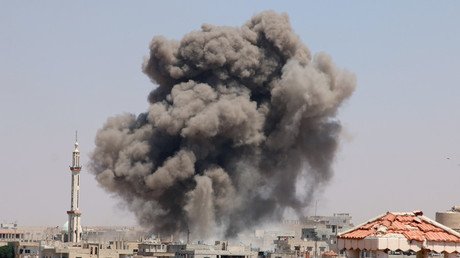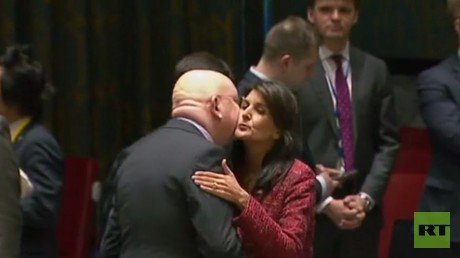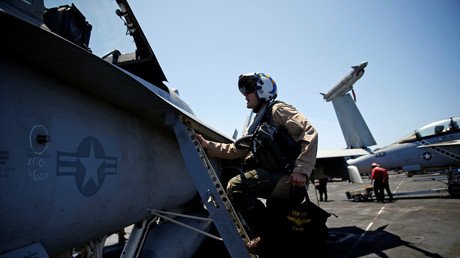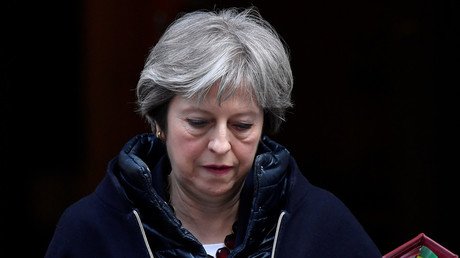WHO 'alarmed' about 'chemical attack' in Syria as West scurries to blame Assad ahead of probe
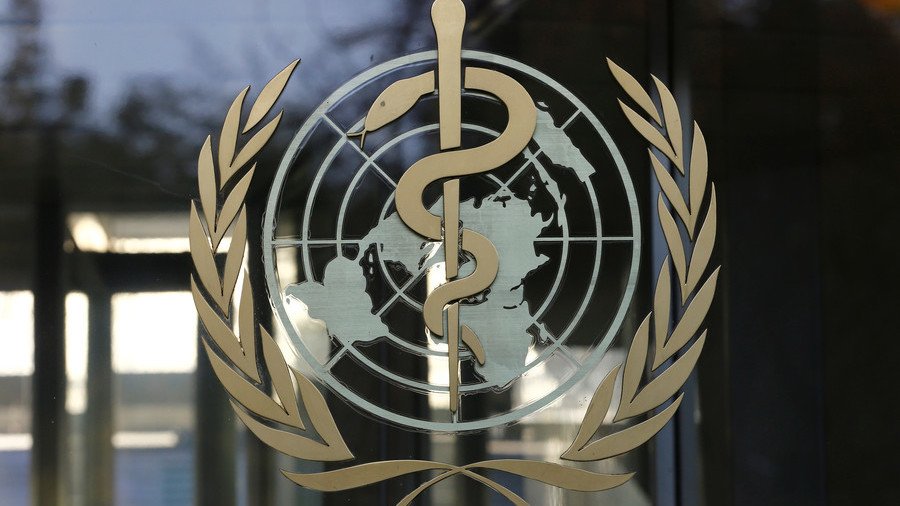
The World Health Organization is "deeply alarmed" about the alleged use of toxic chemicals in Syria, as the West continues to jump to conclusions and US President Donald Trump mulls military action ahead of an official probe.
In a Wednesday statement, the World Health Organization (WHO) said that an estimated 500 patients were "presented to health facilities exhibiting signs and symptoms consistent with exposure to toxic chemicals," citing reports from Health Cluster partners.
The statement goes on to say that "more than 70 people sheltering in basements have reportedly died, with 43 of those deaths related to symptoms consistent with exposure to highly toxic chemicals."
"We should all be outraged at these horrific reports and images from Douma,” said Dr. Peter Salama, WHO deputy director-general for emergency preparedness and response. He added that the WHO is demanding "immediate" and "unhindered" access to the area where the alleged chemical incident reportedly took place.
The WHO’s reprinting of reports that there were 500 victims was condemned by the Russian Defense Ministry later on Wednesday. Such statements were “reckless,” since they were not backed by any facts, Lieutenant General Viktor Poznikhir said.
“The statements on 500 people, allegedly affected by toxic substances in Douma, voiced today in Geneva by the Australian representative of the WHO Peter Salam, are very concerning,” Poznikhir said, adding that such allegations “not only discredit the organization itself but also fuel a new escalation and bear unpredictable consequences, which would mainly affect the civilian populace of Syria.”
It’s not the first time the WHO produced unfounded allegations, which have apparently played into the hands of the Syrian militants. During the operation to liberate Aleppo, Poznikhir said, the organization claimed that the militant-held areas of the city ran out of medicine and the humanitarian situation there was dire.
“Following the liberation of Aleppo, however, we’ve uncovered terrorist stockpiles, overfilled with imported medical supplies and appliances, including the ones delivered to Syria by the WHO. Despite the repeated requests from Russia, the executives of the organization did not provide any information or explanation on this matter,” the official said.
The WHO's statement comes as Western countries continue to suggest that the Syrian government launched a chemical attack on civilians, without any evidence and ahead of an investigation by the Organization for the Prohibition of Chemical Weapons (OPCW).
The allegations also come despite the Russian military traveling to the area and finding no evidence of a chemical attack, and the fact that the alleged attack was initially reported by the rebel-linked White Helmets.
Still, none of this has stopped Western officials from assuming that President Bashar Assad was behind the alleged incident. Trump has already stated that "nothing is off the table" when it comes to possible military action, and US ambassador to the UN, Nikki Haley, wasted no time referring to Assad as a "monster" and accusing Russia of being "covered with the blood of Syrian children."
At a UN Security Council meeting on Tuesday, the US was one of four countries to vote against a Russian-supported draft backing an OPCW fact-finding mission at the site of the alleged attack in the city of Douma, Eastern Ghouta. Haley said the proposal aimed to put Moscow and Damascus "in the driver's seat" of the investigation, while Russia's UN envoy, Vassily Nebenzia, argued that the proposal was stonewalled simply because it came from Russia.
Meanwhile, Trump stated on Monday that Washington would be "making some major decisions in the next 24 to 48 hours," suggesting that news of his next move could be coming later on Wednesday. Nebenzia has warned the US and other Western countries not to carry out an "illegal military endeavor," adding that he hopes they will "come to their senses."
If you like this story, share it with a friend!
